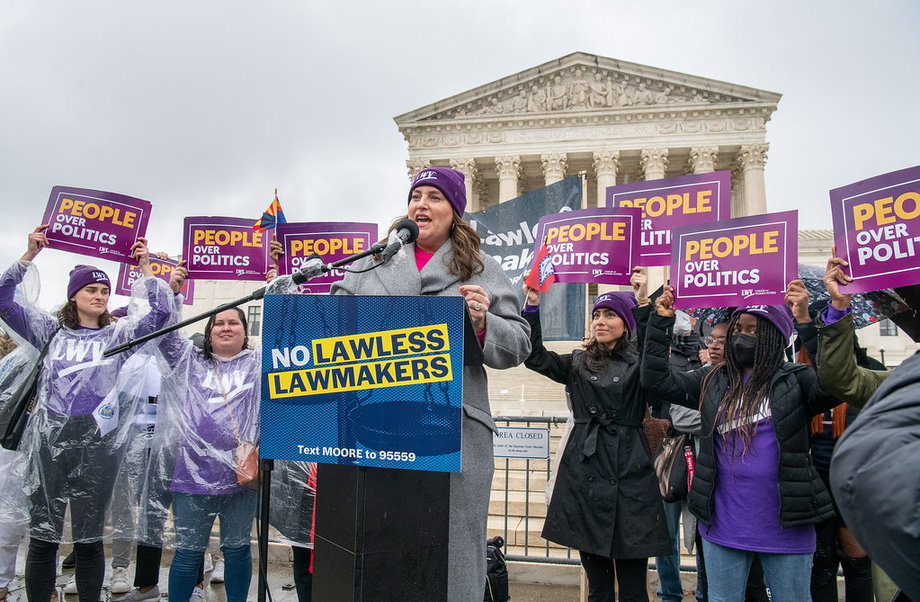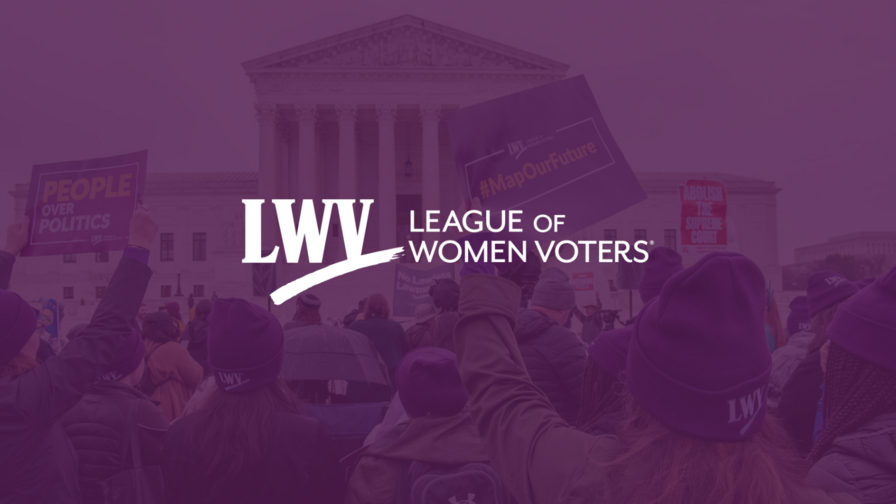What’s going on with Moore v. Harper?
Updated June 27, 2023
LWVUS and Leagues representing all 50 states and DC filed an amicus brief in Moore v. Harper last year.
The case began as a North Carolina state court lawsuit challenging the new congressional map adopted in November 2021. Several North Carolina voters and advocacy organizations argued that the map was a partisan gerrymander that violated the state’s constitution’s free and equal elections clause.
In February 2022, in a 4-3 ruling, with all Democratic justices in the majority and all Republican justices in dissent, the North Carolina Supreme Court ruled the new map was a partisan gerrymander that violated the state constitution’s free and equal elections clause and barred its use for the 2022 elections. The trial court then adopted a new, expert-drawn map.
Join our mailing list!
Keep up with our work in legal cases like Moore v. Harper.
North Carolina legislators appealed to the United States Supreme Court, which agreed to hear the case. The legislators argued that the North Carolina Supreme Court’s decision to reject the legislature’s map overstepped its authority under the US Constitution’s Elections Clause. Via the fringe Independent State Legislature Theory (ISLT), they argued that the Elections Clause gives state legislatures exclusive authority to set rules for federal elections in their states without any limits from other branches of the state government, including state courts and governors. If the ISLT is adopted by the Supreme Court, state legislatures could gain near-absolute power to gerrymander Congressional districts along party lines, which could only be stopped by Congress, among other potential impacts.
Where is Moore v. Harper Now?
The Supreme Court heard oral arguments in Moore v. Harper on December 7, 2022. The League was there rallying outside the court, letting the justices know that we stand for checks and balances (and against ISLT).

On November 8, 2022, the political composition of the North Carolina Supreme Court flipped to a Republican majority. Three months later, the court voted to re-hear Harper v. Hall, the case underlying Moore v. Harper. Notably, nothing had changed in the case — no underlying facts or circumstances — only the court's composition.
On April 28, 2023, the North Carolina supreme court reversed its ruling that the state’s redistricting maps were unconstitutional partisan gerrymanders. In Harper v. Hall, the court held that the state court does not have the power to decide partisan gerrymandering claims. The decision devastates North Carolina voters and democracy as it gives legislators nearly free reign to redistrict along partisan lines.
The LWV of North Carolina issued a statement, noting that the "decision from the North Carolina Supreme Court opens the floodgates for unchecked partisan gerrymandering in our state for decades to come."
On May 4, the US Supreme Court ordered briefing on the impact of the North Carolina supreme court’s decision on SCOTUS’s ability to hear Moore v. Harper. That briefing was filed on May 11, 2023.
SCOTUS reached a ruling on June 27, 2023, affirming the role of state court judicial review in a major victory for checks and balances and the constitutional rights of voters. The Court rejected a state legislature’s exclusive and independent authority over federal elections and was resolute in not expanding that authority through the dangerous “Independent State Legislature” theory.
Read our statement on the ruling in Moore v. Harper.
The Latest from the League
The League of Women Voters and Fair Elections Center released the following statements after the Supreme Court heard oral arguments for the Moore v. Harper case.
LWV of the United States and League chapters from all 50 states and DC filed an amicus brief in the Moore v. Harper case before the Supreme Court. The case concerns the so-called “independent state legislature theory” (ISLT), which, if adopted, would have far-reaching implications for the future of American democracy.
A dangerous theory known as the “independent state legislature doctrine" argues that state legislatures have unconditional power to legislate on election issues and cannot be reviewed by any established checks and balances.
Sign Up For Email
Keep up with the League. Receive emails to your inbox!
Donate to support our work
to empower voters and defend democracy.





